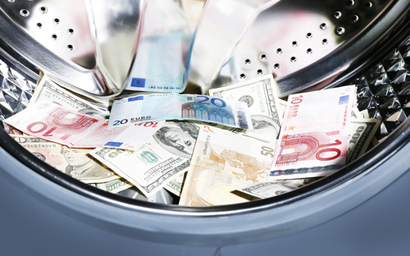Deutsche Bank has been fined for lax anti-money laundering (AML) controls that allowed $10 billion (€9.34 billion) to be transferred through the bank in a way “highly suggestive” of financial crime.
The Financial Conduct Authority (FCA) fined the bank £163 million (€191 million) for failing to maintain an adequate AML control framework.
The FCA said this was the largest financial penalty for AML control failings ever imposed by the FCA and warned other firms to look at their AML procedures.
The fine covers the period between January 1, 2012, and December 31, 2015, when the FCA said Deutsche Bank “exposed the UK financial system to the risks of financial crime by failing to properly oversee the formation of new customer relationships and the booking of global business in the UK”.
As a consequence, Deutsche Bank was used by unidentified customers to transfer approximately $10 billion, of unknown origin, from Russia to offshore bank accounts “in a manner that is highly suggestive of financial crime”, said the FCA.
Mark Steward, director of enforcement and market oversight at the FCA, said Deutsche Bank had put itself at risk of being used to facilitate financial crime and exposed the UK to the risk of financial crime.
“The size of the fine reflects the seriousness of Deutsche Bank’s failings. We have repeatedly told firms how to comply with our AML requirements and the failings of Deutsche Bank are simply unacceptable.”
Among the deficiencies there was inadequate customer due diligence and the use of flawed customer and country risk rating methodologies.
These and other failings allowed the front office of Deutsche Bank’s Russia-based subsidiary (DB Moscow) to execute more than 2,400 pairs of trades that mirrored each other between April 2012 and October 2014.
The mirror trades were used by customers of Deutsche Bank and DB Moscow to transfer more than $6 billion from Russia, through Deutsche Bank in the UK, to overseas bank accounts, including in Cyprus, Estonia, and Latvia.
The purpose of the mirror trades was the conversion of roubles into US dollars and the “covert transfer of those funds out of Russia, which is highly suggestive of financial crime”, the FCA said.
Deutsche Bank agreed to settle at an early stage of the FCA investigation and therefore qualified for a 30% discount. The discount does not apply to the £9.1 million in commission that Deutsche Bank generated from the suspicious trading.
The FCA said Deutsche Bank was “exceptionally cooperative” with the FCA during this investigation and has committed significant resources to a large scale remediation programme to correct the deficiencies in its AML control framework and customer files.
©2017 funds europe





